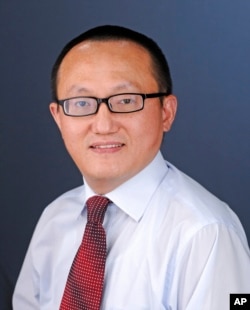A former University of Kansas professor avoided prison Wednesday for making a false statement related to work he was doing in China in the latest setback for a Trump-era U.S. Department of Justice crackdown on Chinese influence within American academia.
Prosecutors had asked U.S. District Judge Julie Robinson in Kansas City, Kansas, to sentence Feng "Franklin" Tao to 2½ years in prison, even after she had thrown out most of his trial conviction for concealing work he did in China.
Robinson instead sentenced Tao to time served, saying there was no evidence he shared proprietary information with anyone in China and that the chemical engineering professor did research that was "freely shared in the scientific community."
"This is not an espionage case," Robinson said. "Maybe that's what the Department of Justice thought what was going on, but that's not what was going on."
Peter Zeidenberg, Tao's lawyer, said his client was "immensely relieved by the sentence."
He said Tao would appeal his remaining false statement conviction for failing to disclose his affiliation with a Chinese university on a form submitted to the University of Kansas.
Tao, who was indicted in 2019, was among about two dozen academics who were charged as part of the "China Initiative," which was launched in 2018 during former Republican President Donald Trump's era and was aimed at countering suspected Chinese economic espionage and research theft.
The Justice Department under Democratic President Joe Biden in February 2022 ended the China Initiative following several failed prosecutions and criticism that it chilled research and fueled bias against Asians, though it said it would continue pursuing cases over national security threats posed by China.
Prosecutors said Tao, who worked on renewable energy projects, concealed his affiliation with Fuzhou University in China from the University of Kansas and two federal agencies that provided grant funding for the professor's research.
A jury in April convicted him of four of the eight counts against him. Robinson in September overturned three wire fraud convictions, citing a lack of evidence.






